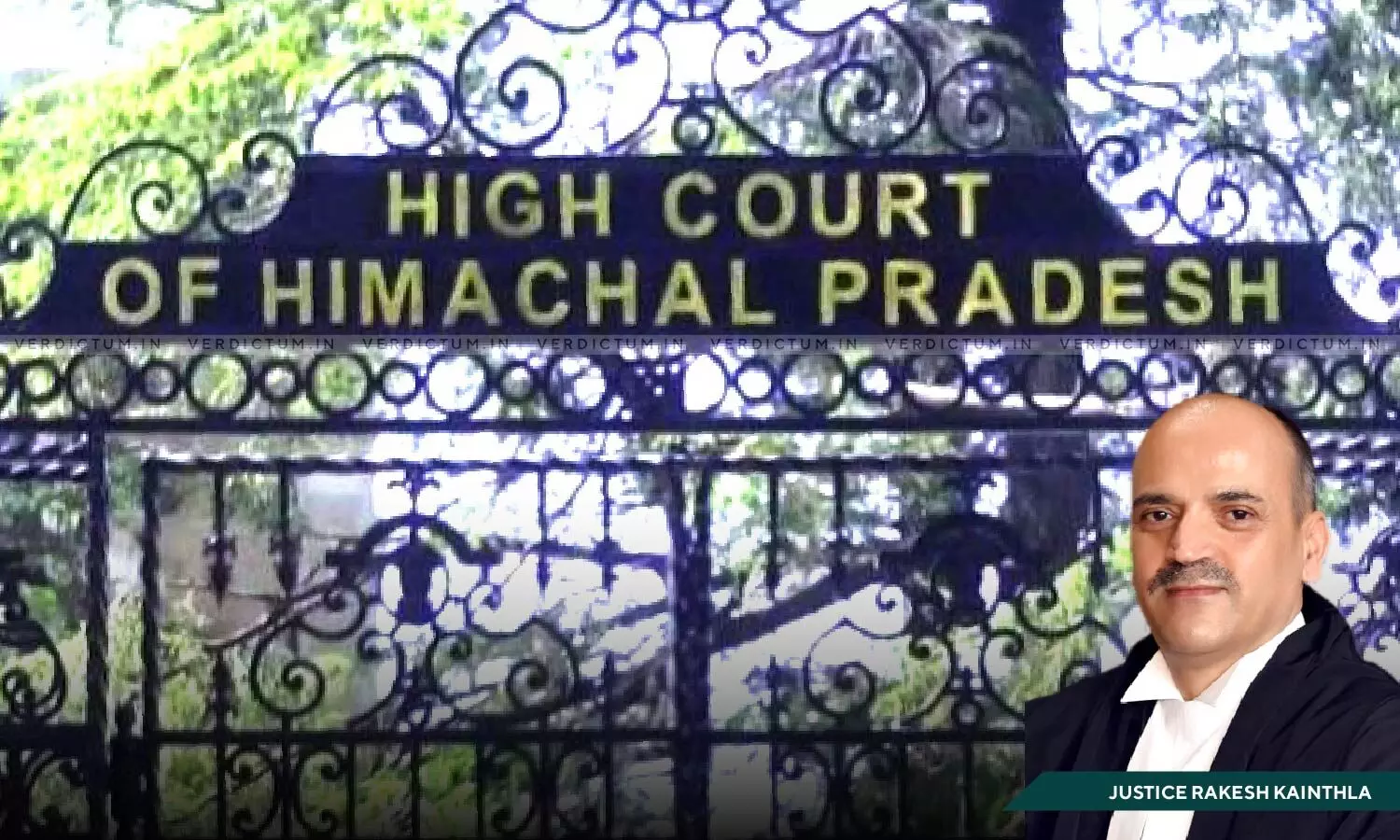
Justice Rakesh Kainthla, Himachal Pradesh High Court
Calling Person “Gunda Spreading Gundaraj” Without Justification Harms Reputation: Himachal Pradesh High Court Convicts Newspaper Chief Editor In Defamation Case
 |
|The Himachal Pradesh High Court observed that calling a person a member of a group of “Shallow Theatre People”, breaching peace and spreading ‘Gundaraj’ does not protect any public interest.
The Himachal Pradesh High Court has convicted the Chief Editor of the Him Ujala Newspaper in a defamation case.
An Appeal was preferred against the Judgment of the Trial Court vide which the accused was acquitted of the offence punishable under Section 500 of the Indian Penal Code, 1860 (IPC).
A Single Bench of Justice Rakesh Kainthla held, “Calling a person Gunda spreading Gundaraj, being a member of Shallow Theatre People without any justification, can be with the intent to harm the reputation of a person. The intention can only be gathered by the circumstances of the case, and no direct evidence of the same can be led. When an imputation concerning the reputation of a person is made without any justification, it can lead to an inference that the publication was with the intent to harm the reputation of the person.”
The Bench observed that calling a person a member of a group of “Shallow Theatre People”, breaching peace and spreading ‘Gundaraj’ does not protect any public interest.
Senior Advocate Bimal Gupta and Advocate Kusum Chaudhary appeared for the Appellant while Senior Advocate Devyani Sharma, Advocates Karan Singh Kanwar, and Basant Pal Thakur appeared for the Respondents.
Facts of the Case
The Appellant-Complainant filed a Complaint before the Trial Court for the commission of an offence punishable under Section 500 IPC. It was asserted that the Complainant was running a business and had a good reputation in the area. The accused No.1, who was Pradhan of Gram Panchayat, Gorkhuwala did not have cordial relation with the Complainant. The said accused was asked to deposit the embezzled amount by the Government after the villagers complained against him. However, he believed that the Complainant had made the Complaint and allegedly threatened him to falsely implicate him. The Complainant made a complaint to the Deputy Superintendent of Police (DSP) for taking action against the said accused.
Allegedly, the accused had involved the Complainant and his family members in a false case under Section 498-A IPC. He alleged to have published false news item in Him Ujala Newspaper, making derogatory allegations against the Complainant, calling him ‘Natakbaj’ and ‘Gunda’. This newspaper was published by the accused No.2 who was the Chief Editor of the same. It was alleged that the news item was published to lower the reputation and image of the Complainant in the public at large. The Trial Court dismissed the Complaint and being aggrieved, the Complainant was before the High Court.
Reasoning
The High Court in view of the facts and circumstances of the case, noted, “In the present case, the accused No. 2 did not claim that he had made any inquiry into the allegations published in the news item. … There is no evidence on record that the complainant is a member of the theatre group, had ever breached the public peace, or he had spread Gundaraj.”
The Court added that the publication of these facts would have been relevant if the Complainant had such a character, and it was necessary to warn the people about him; however, in the absence of any such evidence, the publication cannot be said to be in good faith or for protecting the public interest.
“Thus, the learned Trial Court had rightly acquitted the accused No. 1, Ramesh Kumar, for the commission of an offence punishable under Section 500 of the IPC. … Learned Trial Court acquitted accused No.2 on the ground that the news item was published as per the press note; however, it is not material because republication does not provide any defence to the publisher”, it further said.
The Court was of the view that all the reasons for acquitting accused No.2 are contrary to the legal position and had the correct legal position been brought to the notice of the Trial Court, it would not have acquitted the accused.
“Learned Trial Court held that it was required to be proved that accused No.2 had malice against the complainant, which is not a requirement, as noticed above. Learned Trial Court further held that the defence of good faith is available to the accused No.2; however, the same is not correct because accused No.2 never claimed that he made inquiries before the publication”, it also noted.
Accordingly, the High Court partly allowed the Appeal and convicted the accused No.2 (Chief Editor).
Cause Title- Gopal Chand v. Ramesh Kumar and Another (Neutral Citation: 2025:HHC:21079)